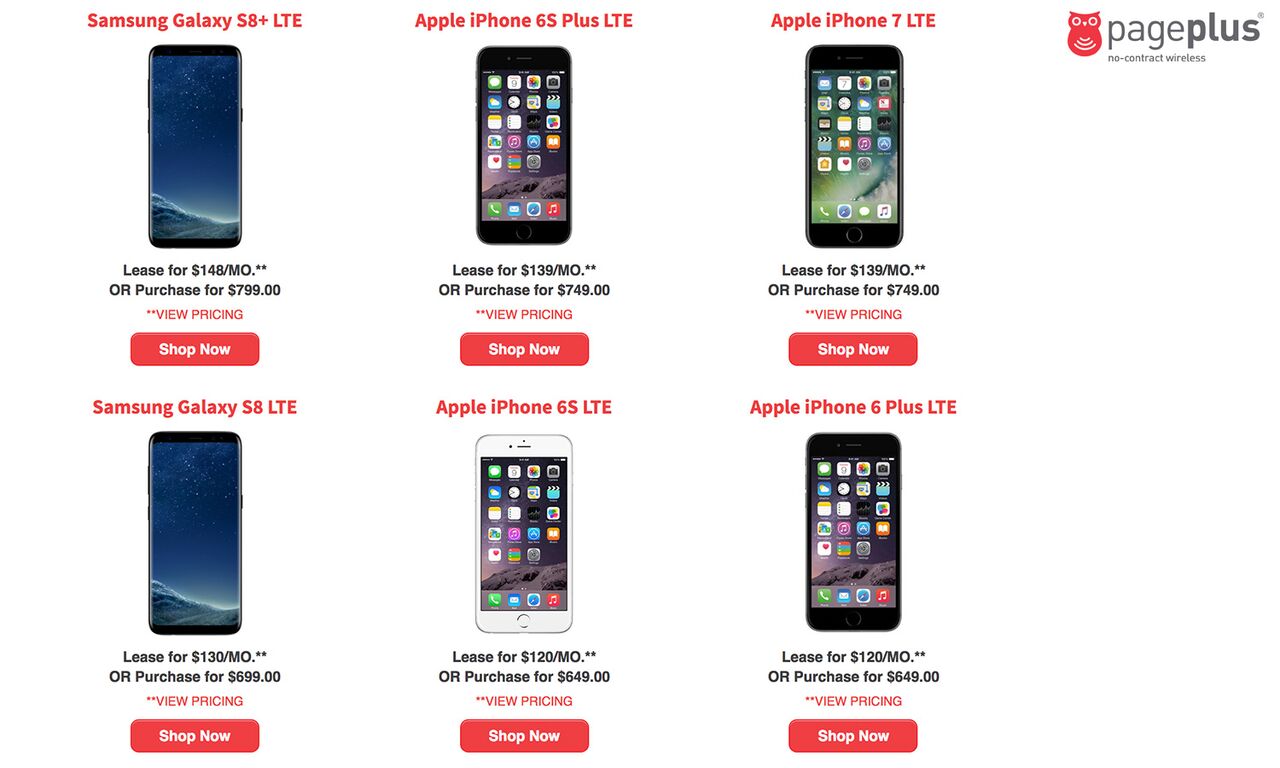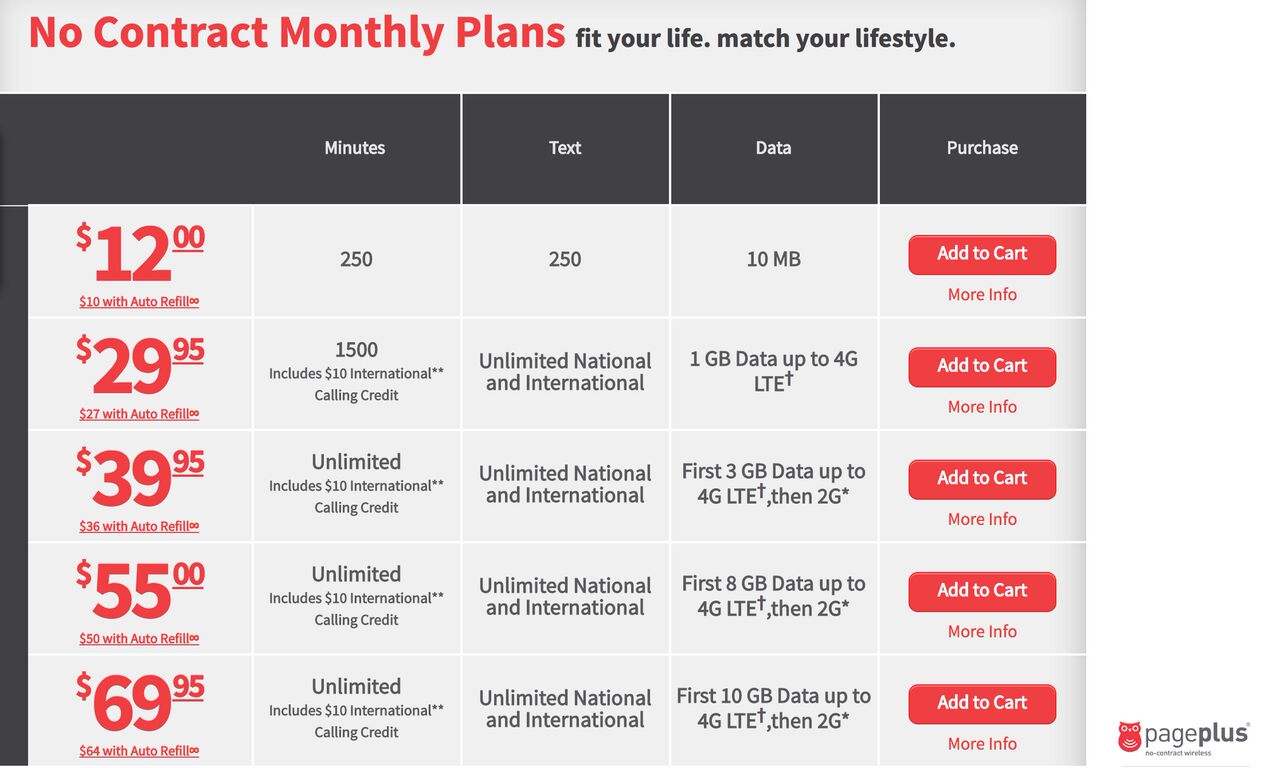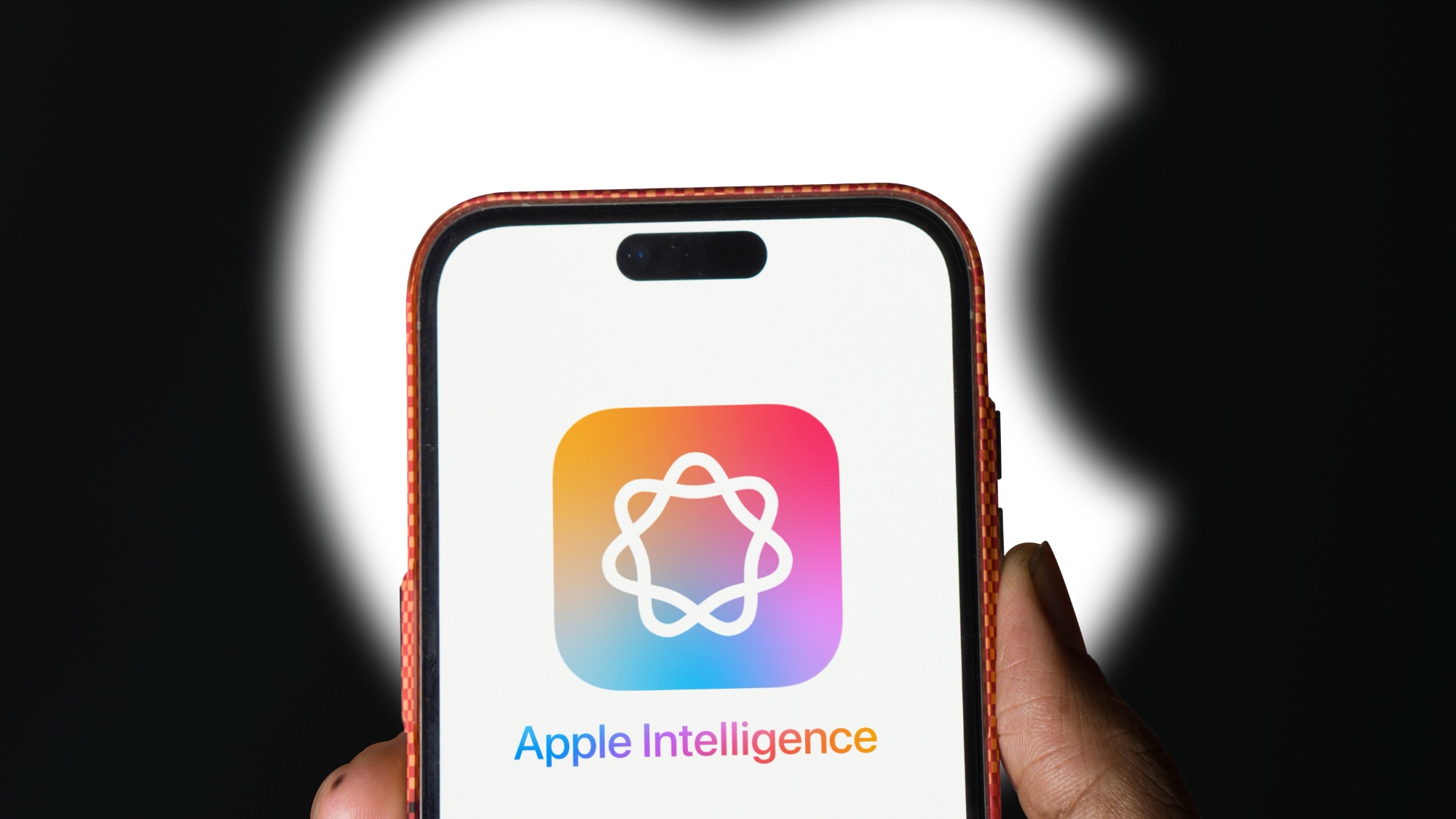What Is Page Plus, and Is It Worth It?
Page Plus is a discount wireless carrier that uses Verizon’s leading network for its cellphone service. But what other reasons should you consider Page Plus?

Discount wireless carrier Page Plus is one of the many subsidiaries operated by TracFone Wireless. That’s not a name you may have heard of, but you will probably recognize some of that company’s other brands, like NET10 Wireless, Straight Talk or Walmart Family Wireless.
Page Plus looks to stand out from that crowd by relying on one of the best-performing networks in the U.S. and offering subscribers both a wide variety of phones and a range of cellphone plans.
If you’re looking for a low-cost wireless carrier, here’s what you need to know about Page Plus.
What network does Page Plus use?
Page Plus is a mobile virtual network operator, or MVNO, that runs exclusively on the Verizon Wireless network. That’s good news — Verizon had the best download speeds when we tested LTE networks earlier this year, and its network is quite extensive. Page Plus does support roaming if you’re outside Verizon’s coverage area, but calls cost 20 cents per minute while roaming on prepaid plans, and 29 cents on one of Page Plus’ pay-as-you-go plans.
To use Page Plus, you’ll need a compatible unlocked phone (essentially any phone that works on Verizon’s CDMA network) and a Page Plus SIM card (which starts at $4.95, though Page Plus periodically offers sales).
What phones can you use with Page Plus?
You won’t be hurting for choices if you wind up buying a phone directly from Page Plus. There are 47 different models on offer, ranging in price from a refurbished $19.99 Alcatel One Touch Pop Icon to a brand-new Samsung Galaxy S8+ for $899.99.

You can buy the phones outright or lease them, with leases provided by SmartPay Leasing. The lease option is not a good deal at all — by the time you pay off your phone in a year, you’ll have paid more than twice the regular purchase price.
Sign up to get the BEST of Tom's Guide direct to your inbox.
Get instant access to breaking news, the hottest reviews, great deals and helpful tips.
Page Plus also sells SIM cards if you care to keep your own phone. You can find out if your phone will work with Page Plus’ service by entering the devices IMEI number during the activation process.
What are the best Page Plus plans?
Page Plus offers five no-contract prepaid monthly plans, ranging from a bargain-basement $12 up to $69.95. Only the first two are worth considering, as you can get prepaid plans directly from Verizon for $40 or more with unlimited calling, unlimited texts and similar data limits.
| Prepaid Plan | Talk Time (in minutes) | Texts | LTE Data | Monthly Discount with Autopay Enrollment |
| $12 | 250 | 250 | 10MB (3G) | $2 |
| $29.95 | 1,500 | Unlimited | 1GB | $2.95 |
| $39.95 | Unlimited | Unlimited | 3GB | $3.95 |
| $55 | Unlimited | Unlimited | 8GB | $5 |
| $69.95 | Unlimited | Unlimited | 10GB | $5 |
The $12 plan gets your foot in the door with a chunk of minutes and texts that presents a far better deal than the pay-as-you-go rates. Note that this cheapest plan includes only 3G data, and only 10MB of it. Use more, and it’s 10 cents per megabyte. Texts and minutes cost an extra 5 cents each if you go over your limit, but again that’s still better pricing than Page Plus’ cheapest pay-as-you-go plans. Calls while roaming are 20 cents and international texts are 20 cents.
The $30 plan bumps you up to 1GB of 4G LTE data and unlimited texts. It’s still cheaper than Verizon’s own prepaid plans.
If you’re going to Puerto Rico or the U.S. Virgin Islands, you’re going to get hosed. Texts are 50 cents for each message sent, and 25 cents for each message received. Ouch.
The pay-as-you-go plans offered by Page Plus don’t compare favorably with many other carriers. If you load up with only $10, you get 100 minutes. That’s 10 cents per minute for domestic calls. Even the $12 prepaid plan is a vastly better deal. The price drops as you buy more minutes, down to a reasonable 4 cents per minute if you spend $80 for 2,000 minutes.
| Pay-as-you-go plans | Minutes | Cost Per Minute |
| $10 | 100 | $0.10 |
| $25 | 416 | $0.06 |
| $50 | 1,000 | $0.05 |
| $80 | 2,000 | $0.04 |
No matter how much you spend on pay-as-you-go minutes, you get charged for everything that’s not a regular domestic call. Calls while roaming are 29 cents per minute. Texts are 5 cents each, and data is 10 cents per megabyte. And if someone sends you a photo via MMS, you pay for the text and the data. International texts are20 cents each.
All but the biggest bucket of pay-as-you-go minutes expire after 120 days, and that 120 days starts over again as soon as you reload your prepaid account.
What special features does Page Plus offer?
Several years ago, Page Plus offered one big feature that other carriers couldn’t match: the ability to bring your own device to Verizon’s network. Today, nearly every carrier lets you bring your own device, as long as it’s compatible.

That leaves Page Plus with little to recommend it. It offers many of the standard “table stakes” features most other carriers do, like three-way calling, call forwarding and caller ID. But when it comes to unique features only available to Page Plus, there’s just nothing there.
Note that while Page Plus doesn’t specifically block tethering or hotspot use, both features are often disabled or restricted on Verizon phones. So if you bring a Verizon-branded phone to Page Plus, you might not be able to easily access those features.
What do customers say about Page Plus?
Page Plus has an A from the Better Business Bureau, but that seems grossly misleading when three of the four reviews are negative and have not been resolved. Parent company TracFone Wireless has an A+, but reviews are overwhelmingly negative.
On forums and comment threads across the internet, user sentiment suggests that the Page Plus service has gone downhill since 2014, when it was purchased by América Móvil (the parent company of TracFone). It’s common to read about problems with billing and customer service.
Bottom line
There was a time when the idea of bringing your own device to the biggest network in the U.S. for prepaid service that didn’t require a credit check had a certain appeal. Today, you can get prepaid service directly from Verizon, everyone lets you bring your own device, and there are lots of other MVNOs with better rates than what Page Plus has to offer.
Combine pricing that ranges from ho-hum to poor with frequent complaints about poor service, and you can probably find better options among low-cost wireless carriers.
